第24章 CHAPTER VIII(2)
In the not very distant days of her little-girlhood, Tom Keriway had been a man to be looked upon with a certain awe and envy; indeed the glamour of his roving career would have fired the imagination, and wistful desire to do likewise, of many young Englishmen. It seemed to be the grown-up realisation of the games played in dark rooms in winter fire-lit evenings, and the dreams dreamed over favourite books of adventure. Making Vienna his headquarters, almost his home, he had rambled where he listed through the lands of the Near and Middle East as leisurely and thoroughly as tamer souls might explore Paris. He had wandered through Hungarian horse-fairs, hunted shy crafty beasts on lonely Balkan hillsides, dropped himself pebble-wise into the stagnant human pool of some Bulgarian monastery, threaded his way through the strange racial mosaic of Salonika, listened with amused politeness to the shallow ultra-modern opinions of a voluble editor or lawyer in some wayside Russian town, or learned wisdom from a chance tavern companion, one of the atoms of the busy ant-stream of men and merchandise that moves untiringly round the shores of the Black Sea. And far and wide as he might roam he always managed to turn up at frequent intervals, at ball and supper and theatre, in the gay Hauptstadt of the Habsburgs, haunting his favourite cafes and wine-vaults, skimming through his favourite news-sheets, greeting old acquaintances and friends, from ambassadors down to cobblers in the social scale. He seldom talked of his travels, but it might be said that his travels talked of him; there was an air about him that a German diplomat once summed up in a phrase: "a man that wolves have sniffed at."
And then two things happened, which he had not mapped out in his route; a severe illness shook half the life and all the energy out of him, and a heavy money loss brought him almost to the door of destitution. With something, perhaps, of the impulse which drives a stricken animal away from its kind, Tom Keriway left the haunts where he had known so much happiness, and withdrew into the shelter of a secluded farmhouse lodging; more than ever he became to Elaine a hearsay personality. And now the chance meeting with the caravan had flung her across the threshold of his retreat.
"What a charming little nook you've got hold of," she exclaimed with instinctive politeness, and then looked searchingly round, and discovered that she had spoken the truth; it really was charming.
The farmhouse had that intensely English look that one seldom sees out of Normandy. Over the whole scene of rickyard, garden, outbuildings, horsepond and orchard, brooded that air which seems rightfully to belong to out-of-the-way farmyards, an air of wakeful dreaminess which suggests that here, man and beast and bird have got up so early that the rest of the world has never caught them up and never will.
Elaine dismounted, and Keriway led the mare round to a little paddock by the side of a great grey barn. At the end of the lane they could see the show go past, a string of lumbering vans and great striding beasts that seemed to link the vast silences of the desert with the noises and sights and smells, the naphtha-flares and advertisement hoardings and trampled orange-peel, of an endless succession of towns.
"You had better let the caravan pass well on its way before you get on the road again," said Keriway; "the smell of the beasts may make your mare nervous and restive going home."
Then he called to a boy who was busy with a hoe among some defiantly prosperous weeds, to fetch the lady a glass of milk and a piece of currant loaf.
"I don't know when I've seen anything so utterly charming and peaceful," said Elaine, propping herself on a seat that a pear-tree had obligingly designed in the fantastic curve of its trunk.